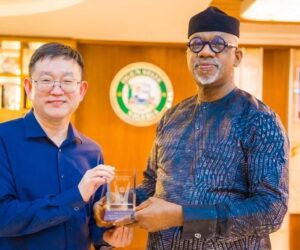
When 23-year-old software student, Chidi, received dozens of unsolicited loan messages after registering for a government exam, he didn’t know his personal details had been leaked.
His frustration mirrors the growing concerns in Nigeria, where young people, who form the largest users of digital platforms, are increasingly exposed to privacy violations despite a new law meant to protect them.
This concern came to the fore in Abuja on Thursday, September 18, as Paradigm Initiative (PIN) presented its Londa 2024 Report, which ranked Nigeria moderately compliant with digital rights standards.
The report showed that, despite the country’s introduction of reforms such as the Data Protection Act, data leaks, high internet costs, and online clampdowns persist.
‘The Body Language Stinks’ — Experts Slam FG
Speaking to Pulse Nigeria at the media briefing, PIN’s Executive Director, Gbenga Sesan, criticised government regulators for failing to practise what they preach.
“The government is happy to sanction companies, but afraid of sanctioning itself. NIMC is the most guilty data leaker in Nigeria, yet they carry on as if nothing happened. The body language stinks,” Sesan said.
He warned that young Nigerians are the most affected by this failure.
“We now have a law that should protect citizens, but sadly, more data leaks are happening now than when there was no law. How do you explain that?”
Grassroots Efforts to Simplify Digital Rights
For Nnenna Paul-Ugochukwu, PIN’s Chief Operating Officer, the challenge is not only about policy but also about awareness.
She explained that the organisation has invested in creative campaigns to make digital rights relatable.
“We use radio dramas, podcasts, even short films like Cold Whispers in the Wires, to explain issues like privacy and online safety in simple language. Our civic space is now online—if you once protested on the streets, today your protest ground is Twitter, TikTok, and WhatsApp,” she said.
She added that their Life Legacy Programme engages young people, women, and underserved communities directly through town halls.
“We break down jargon into what ordinary Nigerians can understand. Because digital rights are human rights,” she noted.
Findings from the Londa Report
The Londa Report 2024 found that, while Nigeria is among Africa’s top 10 digital rights performers, it faces worrying gaps.
Internet affordability remains a significant barrier, with 71% of Nigerians unable to afford regular internet access, which limits opportunities for learning, work, and online activism.
The report also criticised the government for throttling internet access during the #EndBadGovernance protests in August 2024.
It noted that vague laws still put journalists and activists at risk despite amendments to the Cybercrimes Act.
Sesan urged youth to challenge these practices: “People think violations are normal. But when they see that violators can be punished, they start to resist. That’s how change begins.”
The Road Ahead for Nigeria’s Digital Future
The Londa Report recommends stricter enforcement of the Data Protection Act, cheaper internet for students and low-income families, and transparency in how government agencies handle breaches.
It also calls for urgent regulation of AI and digital surveillance to prevent misuse. For young Nigerians who live, work, and socialise online, the stakes could not be higher.
Paul-Ugochukwu insists that the fight for rights must be collective: “Digital freedom isn’t abstract—it’s about your right to express yourself, your right to privacy, your right to assemble online. These are things every young Nigerian uses daily, whether on WhatsApp or Instagram.”
As Nigeria navigates the promises and perils of the digital age, its youth remain both the most empowered and the most vulnerable. The question, as Sesan put it, is whether the government will finally match words with action.






